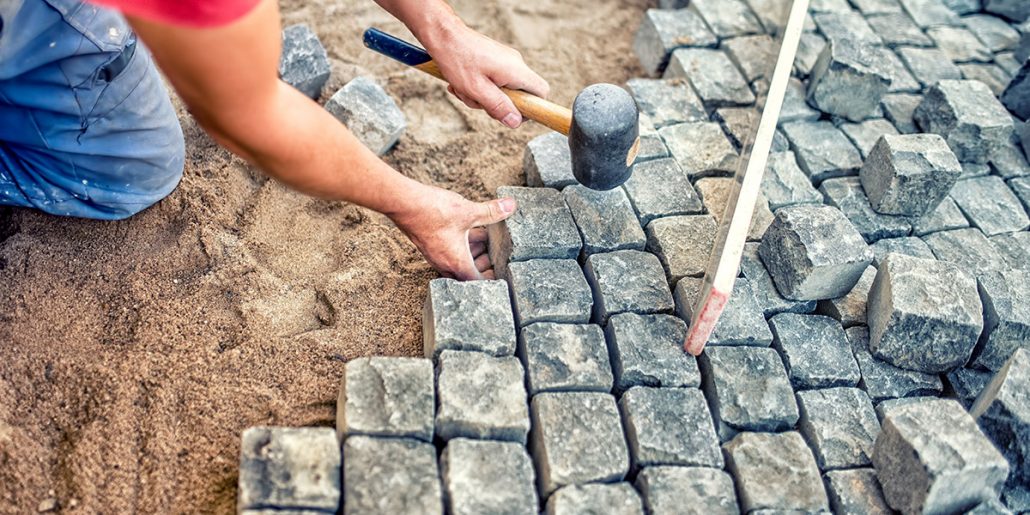Professional Masonry Contractor Services: Enhance Your Residential Or Commercial Property Today
Opening the Secrets of Lasting Stonework Construction Practices for Eco-Friendly Structures
Amongst the myriad approaches to environment-friendly building, sustainable masonry construction stands out as a reliable and durable technique that holds a wide range of untapped potential. From the selection of materials to ingenious building and construction strategies, the secrets to accomplishing sustainability within stonework building and construction are multifaceted and fascinating.
Advantages of Sustainable Masonry Building And Construction
Welcoming sustainable masonry construction practices not just minimizes environmental impact yet additionally provides long-term financial advantages to home builders and communities. By making use of products like recycled bricks, obstructs, and stones, building contractors can dramatically decrease the carbon impact of their tasks while promoting source efficiency. In addition, sustainable stonework building techniques, such as appropriate insulation and thermal mass residential or commercial properties, can enhance power efficiency within structures, resulting in lowered operational prices gradually.
Additionally, the sturdiness and resilience of masonry frameworks add to lasting economic advantages. Buildings built using lasting stonework practices usually need much less maintenance and repair work, converting to cost financial savings for contractors and home proprietors. The longevity of masonry products also makes sure that frameworks remain steady and safe and secure, decreasing the demand for constant remodellings or substitutes.
Eco-Friendly Stonework Materials
Using environment-friendly stonework products is a pivotal step towards boosting the sustainability of construction practices and lessening environmental effect while maximizing long-term economic benefits. Sustainable masonry materials are sourced, created, and made use of in a fashion that reduces overall environmental effect. Materials such as recycled bricks, redeemed rock, and lasting concrete blocks are becoming increasingly prominent options for eco-conscious home builders. Recycled blocks, for example, not just draw away waste from land fills yet likewise need less energy to produce compared to brand-new blocks. Redeemed rock provides a distinct visual appeal while reducing the requirement for brand-new quarrying. Lasting concrete obstructs integrate recycled aggregates and may feature better insulation residential properties, adding to energy effectiveness in buildings.
In addition, natural products like adobe, rammed earth, and straw bundles offer superb thermal mass buildings, reducing the requirement for heating and cooling down energy. These materials are frequently in your area offered, advertising local economic climates and decreasing transportation-related carbon exhausts. By choosing eco-friendly masonry materials, building and construction projects can dramatically decrease their ecological impact and add to the production of healthier, extra lasting developed environments.
Energy-Efficient Masonry Strategies
Energy efficiency plays a crucial duty in enhancing the sustainability of stonework building and construction practices. By executing energy-efficient stonework strategies, builders can considerably minimize the general energy intake of a structure, bring about reduced operational costs and a smaller environmental footprint. One vital energy-efficient stonework technique is using thermal mass, which involves integrating thick products like concrete or block right into the structure's framework to soak up and store heat. This helps regulate indoor temperatures, decreasing the requirement for mechanical heating and cooling systems.

Developments in Lasting Masonry
Current developments in sustainable stonework practices have actually brought around ingenious strategies that are reshaping the building and construction industry. One such advancement is the development of self-healing concrete, which uses microorganisms embedded within the concrete to heal splits autonomously. This breakthrough not just lowers maintenance expenses yet also improves the durability of masonry structures, adding to their sustainability.
An additional noteworthy advancement is the use of recycled aggregates in masonry building and construction - masonry contractor. By incorporating materials such as crushed ceramic waste or recycled glass right into concrete blends, contractors can minimize the ecological impact of building tasks while keeping structural stability. This method not just draws away waste from landfills however likewise saves all-natural sources, making it a vital innovation anonymous in lasting stonework building and construction
Furthermore, the integration of digital style tools, such as Building Info Modeling (BIM), is reinventing the means stonework frameworks are prepared and built. BIM enables click even more exact computations, minimized material wastage, and enhanced energy efficiency, ultimately resulting in more sustainable structure techniques. These innovations collectively symbolize an encouraging future for lasting stonework construction in the period of green buildings.
Future Trends in Stonework Sustainability
With the cutting-edge strides made in lasting stonework practices, the future trends in stonework sustainability are poised to more change the building industry. Among the crucial patterns shaping the future of stonework sustainability is the enhanced combination of technology. Advancements such as Structure Information Modeling (BIM) and virtual truth simulations are being utilized to maximize stonework construction procedures, leading to decreased product waste and enhanced energy effectiveness in buildings.
In addition, the advancement of novel sustainable products is established to play a substantial duty in improving the eco-friendliness of stonework building. masonry contractor. Technologies like self-healing concrete, recycled accumulations, and bio-based binders are acquiring grip for their capability to decrease environmental influence while preserving architectural integrity

Conclusion
Finally, sustainable masonry building techniques supply various advantages for green structures. By making use of environmentally friendly materials and energy-efficient methods, masonry can official website add to a much more sustainable developed atmosphere. Developments in sustainable masonry are continuously being developed to even more improve the ecological efficiency of structures. Looking in the direction of the future, the trend of masonry sustainability is expected to expand, leading to more environmentally pleasant and energy-efficient building and construction methods in the years to come.